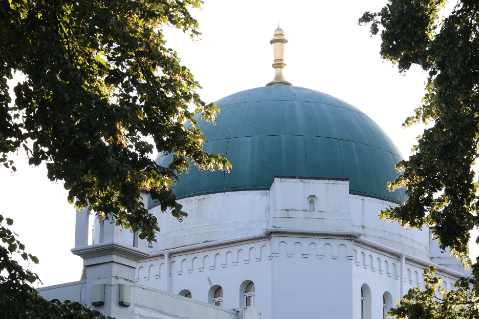The nationally representative survey, conducted by Whitestone Insight between the 26th and 27th June 2024 and published on the 2nd July, suggests that 60% of British Muslims agree with the statement “My faith is bound up with my cultural heritage”, with this figure rising to 68% of Exclusivist Muslims (those who say that Islam is the one true faith).
Further research from IIFL, conducted in January and February 2024, revealed that British Muslims come from a wide range of cultural and ethnic backgrounds, with 39% of Muslims in the UK describing themselves as Pakistani, 14% as Bangladeshi, 10% as Black African, 9% as Arab and 9% as Indian.
The July survey also found that, across religious groups, British Muslims were the most likely to agree with the statement “My faith will shape the way I vote in the general election”, with 51% agreeing compared to just 20% of Christians and 31% of Hindus.
Rania Mohiuddin-Agir, a mixed-heritage Muslim woman living in Britain and research associate for IIFL, says of the findings:
In the age of globalisation, interconnectedness, and mobility, the facets of our identity that ground us appear to be intrinsically linked. Taking into account the impact faith has on the daily lives of British Muslims, this statistic highlights two very important points.
First, it showcases a certain vulnerability with the way something as deeply personal as faith can be exposed to external influences in the form of cultural heritage, community identity, and possibly even societal pressures.
Second, it emphasises the range of variation amongst British Muslims – and the impossibility of identifying a single community group of ‘British Muslims’. A multicultural Muslim society brings with it varying understandings of Islam and Islamic practices. So much so that across the United Kingdom, Muslims tend to celebrate Eid on different days depending on which Muslim country they align their calendar with! Such insights are crucial for fostering cultural awareness and promoting inclusive dialogues.
For any further information or commentary, please contact Dr Jake Scott, secretary for the Institute.
Dr Jake Scott
jake.scott@iifl.org.uk
Notes for editors:
- This survey was carried out by Whitestone Insight. They interviewed 2,075 UK adults on-line between 26th and 27th June 2024. Data were weighted to be representative of all UK adults. Whitestone Insight is a member of the British Polling Council (BPC) and abides by its rules.
- The survey included a weighted base of 86 Muslims.
- Respondents of the Sikh, Jewish, Buddhist and other faiths were too small in number to draw statistically significant conclusions from.
- “Exclusivists” are people of faith who agree with the statement “I believe my faith to be the only true religion”.
- The data set for the July tracker can be found here.
- The data set on British Muslims’ ethnic backgrounds can be found here.

